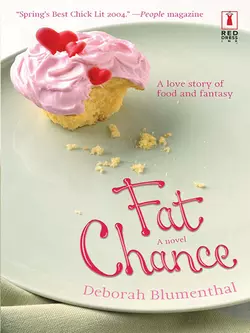Fat Chance

Deborah Blumenthal
Тип: электронная книга
Жанр: Современная зарубежная литература
Язык: на английском языке
Стоимость: 463.26 ₽
Статус: В продаже
Издательство: HarperCollins
Дата публикации: 16.04.2024
Отзывы: Пока нет Добавить отзыв
О книге: Plus-size Maggie O′Leary is America′s Anti-Diet Sweetheart. Her informed column about the pitfalls of dieting is the one sane voice crying out against the dietocracy.She is perfectly happy with who she is and the life she leads. Until she gets the chance to spend some quality time with Hollywood′s hottest star. Maggie knows she can′t exactly show up looking like…well, herself. So she swallows her words and vows to become the skinniest fat advocate Tinseltown has ever seen.Swearing her trusted assistant to silence, Maggie embarks on a «secret» makeover. From showdowns with her boss, who is convinced his star columnist is losing her edge–er, girth–to run-ins with her closest male friend, the trip through the famed red door of beauty is anything but graceful. But despite her doubts about abandoning the comfortable life she′s known–not to mention deceiving legions of loyal readers who still think of her as their champion, L.A.-bound Maggie is hell-bent on getting her just «desserts»!Bursting with wit, insight and humor, Deborah Blumenthal′s Fat Chance is a guilt-free pleasure that is good to the last page!